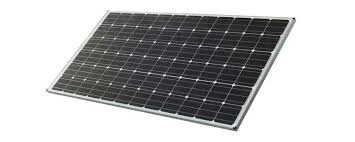Understanding Solar Panel Wattage and Its Impact on Energy Efficiency
Understanding Solar Panel Wattage What You Need to Know
As the world shifts toward renewable energy sources, solar power has emerged as a popular choice for both residential and commercial applications. One critical aspect of solar energy systems is the wattage of solar panels. Understanding solar panel wattage is essential for individuals and businesses looking to harness solar energy effectively.
What is Solar Panel Wattage?
Wattage, expressed in watts (W), measures the power output of a solar panel under standard test conditions. The most common wattages for residential solar panels range from 250W to 400W. Essentially, higher wattage panels can generate more electricity in the same amount of time than lower wattage panels. Therefore, the wattage rating of a solar panel indicates its efficiency and output potential.
How is Wattage Calculated?
The wattage of a solar panel is determined by two primary factors the number of solar cells and the efficiency of each cell. Most solar panels consist of 60 or 72 cells, with higher efficiency cells producing more power. For example, a 300W solar panel might have highly efficient cells that convert a larger fraction of sunlight into electricity compared to a standard panel with lower efficiency ratings.
To calculate the total output of a solar panel array, multiply the wattage of a single panel by the number of panels in the system. For instance, if you have ten 300W panels, your system's maximum output will be 3,000W, or 3 kilowatts (kW).
Importance of Choosing the Right Wattage
Selecting the appropriate wattage is crucial for meeting energy needs and maximizing investment in a solar power system. Higher wattage panels are generally more expensive, but they can result in lower installation costs since fewer panels are needed to achieve your desired energy output. For those with limited roof space, high wattage panels are a practical solution for maximizing energy generation.
solar panel wattage

Conversely, if you have ample roof space and are budget-conscious, lower wattage panels may be suitable. It's essential to analyze your energy consumption patterns and assess the available installation area to determine the best fit for your situation.
Factors Influencing Solar Panel Performance
While wattage is a key indicator of a solar panel’s performance, it’s not the only factor to consider. Some important aspects include
1. Climate and Location The amount of sunlight exposure varies based on geographic location and climate conditions. Areas with more sunlight will naturally yield better performance from solar panels.
2. Installation Angle and Orientation The angle at which solar panels are installed significantly affects their output. The ideal angle usually corresponds to the geographical latitude of the location and should ideally face south in the Northern Hemisphere for maximum sunlight exposure.
3. Shading and Obstructions Trees, buildings, and other obstructions can cast shadows on solar panels, reducing their efficiency. It’s important to choose installation sites carefully to minimize shading.
4. Panel Quality and Technology Not all solar panels are created equal. The type of technology, such as monocrystalline, polycrystalline, or thin-film, impacts wattage and overall efficiency. Monocrystalline panels tend to offer higher efficiency and longer lifespan compared to the other types.
Conclusion
Understanding solar panel wattage is essential for anyone looking to invest in solar energy. By considering the wattage alongside other factors such as installation site, panel quality, and energy needs, homeowners and businesses can make informed decisions that optimize their solar investments. Ultimately, the right choice can lead to substantial energy savings, reduced carbon footprints, and a more sustainable future. As we harness the sun's power, being informed about wattage will empower us to make more effective choices in our journey toward renewable energy utilization.
-
Unlocking Energy Freedom with the Off Grid Solar InverterNewsJun.06,2025
-
Unlock More Solar Power with a High-Efficiency Bifacial Solar PanelNewsJun.06,2025
-
Power Your Future with High-Efficiency Monocrystalline Solar PanelsNewsJun.06,2025
-
Next-Gen Solar Power Starts with Micro Solar InvertersNewsJun.06,2025
-
Harnessing Peak Efficiency with the On Grid Solar InverterNewsJun.06,2025
-
Discover Unmatched Efficiency with the Latest String Solar InverterNewsJun.06,2025







